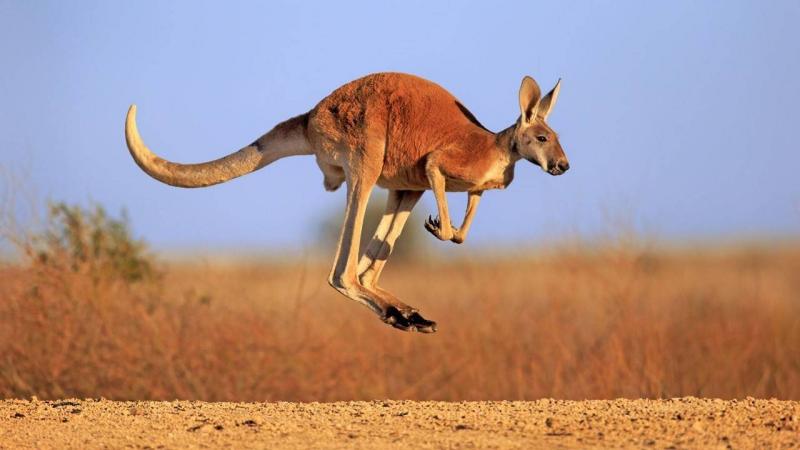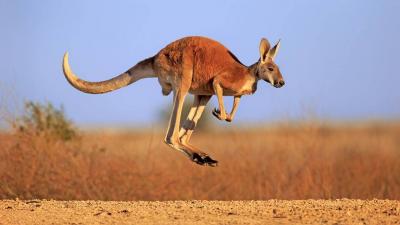The National Center for Wildlife Development in Saudi Arabia announced the arrest of a group of individuals for slaughtering a kangaroo and cooking it as a meal. The center clarified that the posts circulated on social media, showcasing the slaughtering of a native wildlife creature ("kangaroo") and preparing it as food, violate the provisions of the Environmental System, which prohibits killing or harming live wildlife animals, as specified in the system. It also contravenes the executive regulations for trading in wildlife and its products, and that the center licenses the importation of this creature for sale and breeding purposes, not for slaughter.
In a statement published on Saturday via their Twitter account, the center noted that the video was monitored in real-time, and coordination is underway with relevant authorities in the Ministry of Interior to apply regulatory measures against the individuals involved. The center urged everyone to familiarize themselves with the Environmental System and its executive regulations to avoid exposure to any legal actions.
In this context, Bandar Al-Falih, spokesperson for the National Center for Wildlife Development, emphasized that the unit responsible for monitoring violations of wildlife crimes recorded the footage circulated in recent days, which shows a group of individuals preparing a "Mandi" meal using the kangaroo. He stated that from the moment the video was published and gained attention, it was monitored and addressed in coordination with concerned authorities to summon the violators for a review of the violation.
He added that the executive regulations regarding trading in wildlife and the laws stemming from the Environment System related to wildlife outline several violations that must be avoided, one of which is publication. The center is currently dealing with this violation and appropriate penalties will be applied in due course.
He stressed during an interview with the Saudi News Channel that posting such content encourages others to slaughter similar animals. He noted that the center is responsible for issuing import licenses for wildlife into the Kingdom, with licenses granted for specific uses. This type of animal was licensed for breeding and reproduction, not for slaughter.
He mentioned that those who published the video did not consider the negative implications of promoting the idea of slaughtering and consuming wildlife, as many wildlife species are endangered, and cooking them is not part of their usage standards. He urged everyone to refrain from spreading negative cultural attitudes toward wildlife interactions.
Regarding the penalties the perpetrators of such acts may face, he stated, “Whether in this case or others, we encourage everyone to consult the Environmental System and its executive regulations, as there are several wrongful practices that violate the law and incur fines.” He emphasized the importance of confirming the source of wildlife, whether imported legally or not.
In response to claims that the animal observed in the video was brought in a licensed manner, he confirmed that upon reviewing the records, those featured in the video did not import it directly; instead, they purchased it from a dealer who imported it legally and then sold it to them. Unfortunately, they dealt with it inappropriately.
Regarding the individuals involved in the video not possessing a license for keeping the animal, he remarked, "Investigations are still ongoing regarding this violation. According to our records, there are similar species licensed for importation into the Kingdom. If the creature shown in the video is of the same types that were imported, the violation will be addressed, and if it was imported unlawfully, that constitutes an additional violation."
He also pointed out that one of the violations everyone should be aware of is “acquisition licenses.” If a person purchases a wildlife creature for possession, they must obtain the relevant acquisition licenses, emphasizing that any act of harming wildlife shared on social media represents negative practices, whether done intentionally or out of ignorance.




